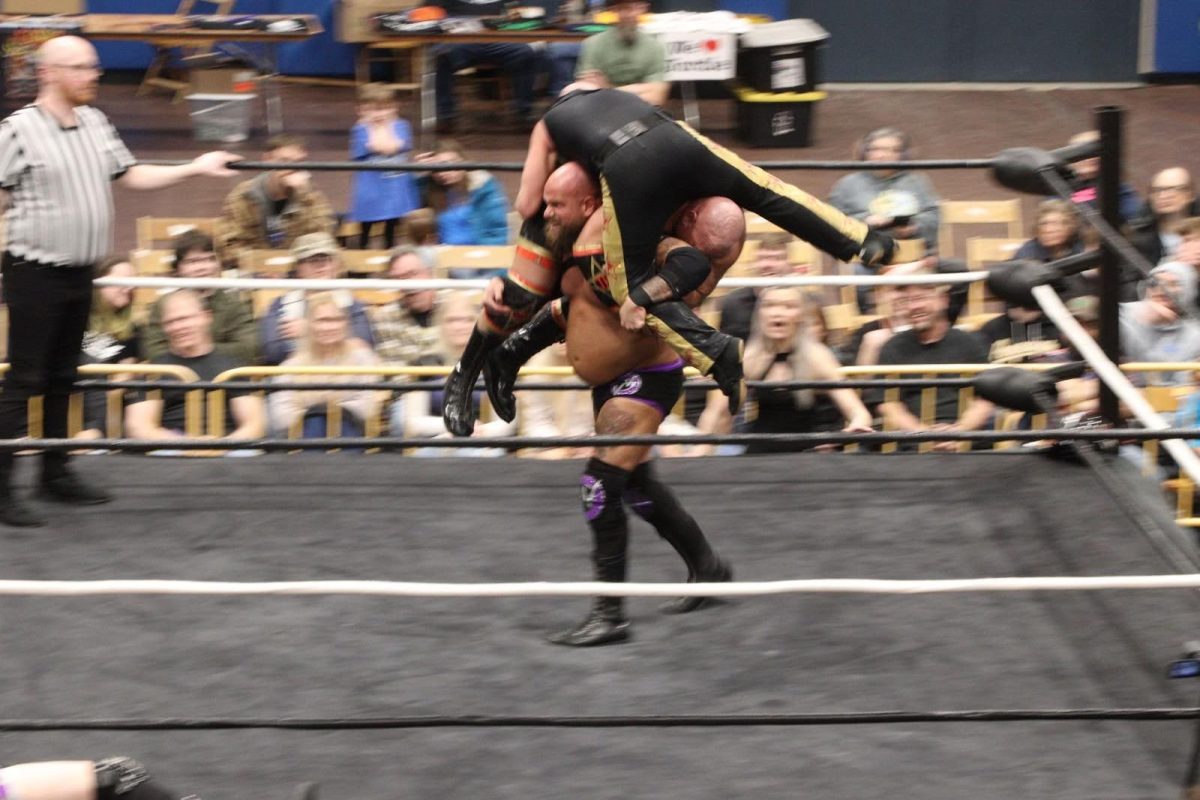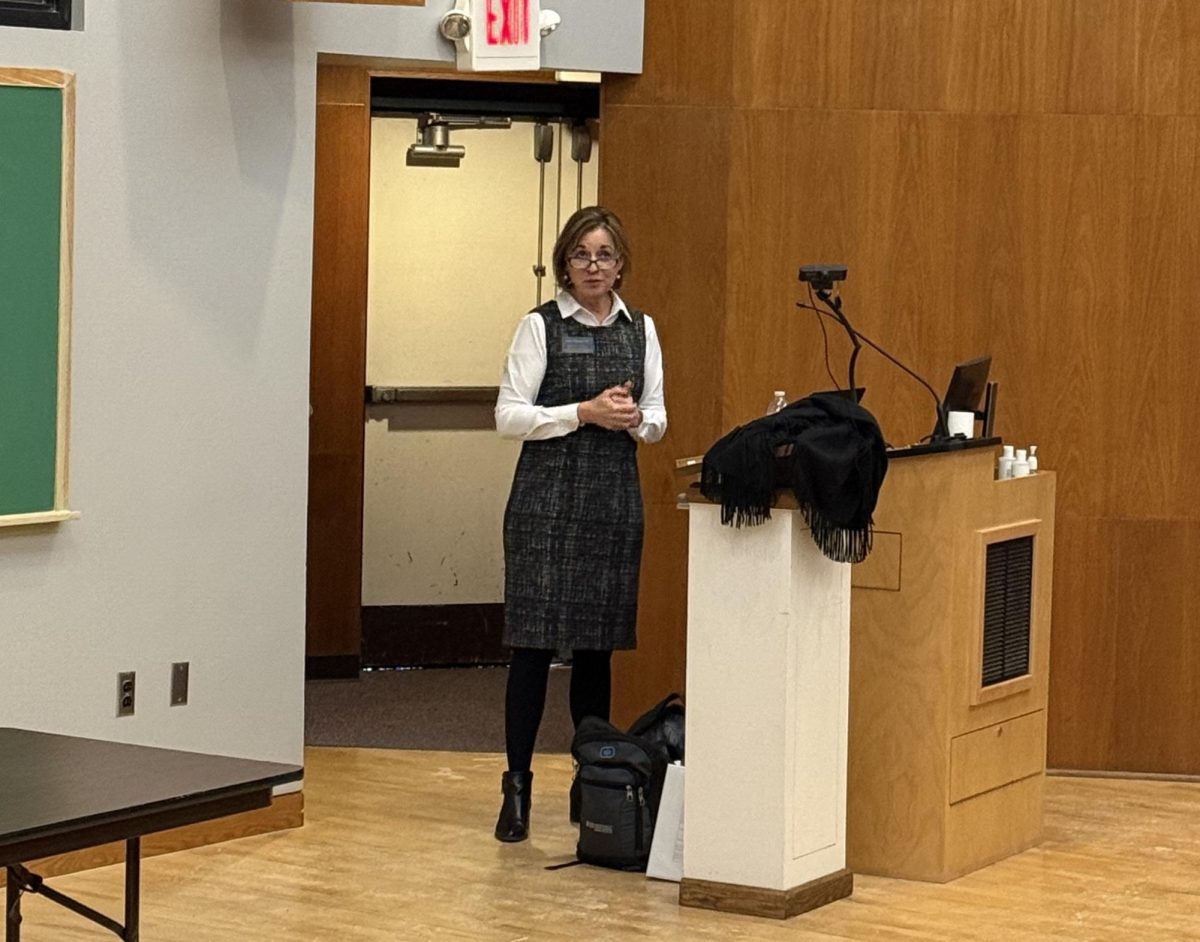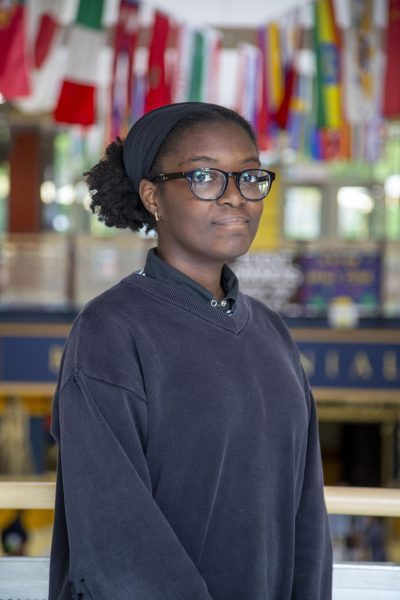Professor of History and Religion Dara Delgado held a talk in the Collaboratory of the Lawrence Lee Pelletier Library to speak about the connections between race, religion and reproductive rights on Tuesday, Oct. 22. The talk followed her article published in “The Conversation” in early October, which provided commentary on a speech given by Democratic party presidential candidate Vice President Kamala Harris, to Zeta Phi Beta sorority members.
Harris’ speech, which directly addressed reproductive rights, race and religion, caught Delgado’s eye and inspired her to write about the significance of the moment.
“It was in this moment with a predominantly black audience that she (Harris) tied together this conversation on democracy and freedom and abortion access with religion and faith, and she expressly said it,” Delgado said.
Delgado is currently a fellow at the Public Religion Research Institute, a nonprofit organization that researches religion and its connection to culture and politics.
“PRRI, as it’s known, is an opportunity for folks to have this cross-disciplinary societal sector discussion that makes what’s happening in the current culture clean and accessible to the greater public,” Delgado said. “We’re seeing scholars and clergy and different folks get involved in conversations around policy, politics, religion, culture, things of that nature.”
As a PRRI Fellow, Delgado said she has an obligation to contribute to a range of topics over a 12-month period. Associate Professor of Political Science Andrew Bloeser and Associate Professor of Political Science Tarah Williams are also PRRI Fellows. Bloeser and Williams encouraged Delgado to host an event surrounding the topics in her article to allow students and other faculty to attend and ask questions.
Since its initial publishing, the article has accrued over 100,000 interactions, which Delgado said is a success.
“That’s pretty exciting for such a small, accessible piece to get into the hands of different folks,” Delgado said. “I think it did what it was supposed to do. I was excited about the opportunity.”
Delgado hopes that, because of this event, attendees will mill over the information they learned and question their own preconceived notions.
“The feedback from my colleagues and students — the adjectives that I keep hearing are insightful,” Delgado said. “That’s important because, at the very least, it opens folks up to other discussions around this happening and it allows for maybe future discussions to begin happening.”
One of the attendees, Dyllan Mbane, ’26, attended the event for “the conversation itself,” and to support his former professor while learning more about the topic she spoke about. He also felt it was important to learn more about Harris’ stance on reproduction rights ahead of the election.
“I definitely wanted to be able to know more about Kamala’s stance and where she stood when it came to abortion access,” Mbane said.
Delgado recognized that voters whose identities rest at the intersection of race and religion — such as the members of the Zeta Phi Beta sorority, one of the Divine Nine historically African American fraternities and sororities— may juggle difficult feelings when it comes to the policy issues Harris addressed in her speech. Delgado believed there is validity in those feelings, but also a balance when it comes to voting and the values people consider dear to them.
“As humans, we’re always being called to wrestle with hard things,” Delgado said. “It doesn’t mean that I have to pick one over the other. But, what it does mean is that my personal faith and my personal convictions are mine and they are not to be imposed on the general public, especially in a matter of imminent danger.”
Delgado thinks back to what she’s heard from other religious individuals and how they frequent their religious leaders for advice on how to deal with these policies. These civic freedoms, according to her, are extremely personal matters and should not be dictated by the government to broadly apply to all people, regardless of their specific situations.
“We are a value-oriented people,” Delgado said. “All of that shows up in how we live and have the fullness of the human experience. If we go in with tunnel vision and vote on a singular issue or vote along party lines only, or whatever social pressures we have, then we’ve done a disservice to those who we’re connected to who could be greatly impacted by irresponsible citizenship.”









